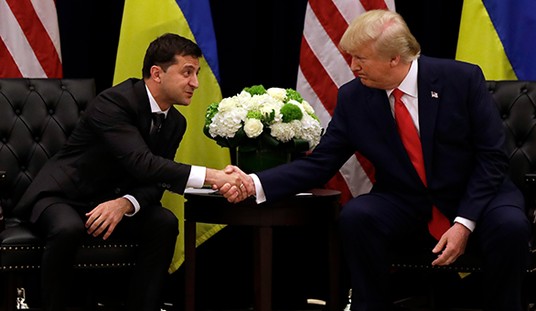North Korea-US: North Korea is repackaging some old ideas for talks so as to promote itself as the leader in restoring peace and unity to Korea in 2015.
On 7 January, North Korea made the first overture of the year to the US to promote talks.
"…The Policy Department of the DPRK National Defense Commission is sending the following notice on its principled stance as follows to the US Obama administration that is driving DPRK-US relations toward the worst confrontation phase from the outset of the new year.:…"
"1. The United States should withdraw all of the grossly unjust anti-DPRK "sanctions" measures across the board…"
"2. The United States should make a bold decision on this occasion to unconditionally suspend all rash hostile acts that foster war danger on the Korean Peninsula…."
"3. The United States should not forget, not even for a moment, that our army and people have entered a battle of unprecedented ultra-hardline response…."
On 10 January, the North Koreans followed the "statement" with a"crucial proposal." The Democratic People's Republic of Korea (DPRK) said Saturday it is ready to "temporarily suspend" nuclear testing if the United States agrees to temporarily halt joint military exercises with South Korea this year.
This is an offer by the DPRK government to "remove the danger of war, ease tension and create a peaceful climate on the Korean Peninsula." It is prompted by the desires of all Korean people to "open up a broad avenue to independent reunification in 2015" to mark the 70th anniversary of the division of the nation.
The message sent to the US clarified Pyongyang's stance that the DPRK "is ready to sit with the US anytime" if the US needs to hold talks with the DPRK regarding the issue.
Comment: A quid-pro-quo offer of any kind from North Korea is unusual and, thus, automatically suspect. The Allies and North Koreans both train for war every year. A suspension of Allied training without a suspension of North Korean training would give the North a readiness advantage for at least a year.
Recommended
The next obvious North Korean ploy would be to propose that if one year is acceptable, why not more, until there would be no need for US forces in Korea.
However, the North's offer is not attractive for many other reasons. For example, the Allied training occurs every year. North Korean nuclear testing is a sometime event that might never occur. The proposal lacks symmetry of time terms.
The proposal lacks symmetry of substance. The Allied training improves the combat readiness of forces in place to defend South Korea. The North's nuclear weapons program is part of an offensive strategy whose objective is unification of Korea. It is not clear that the weapons program would be affected. Certainly, the million-man North Korean armed forces would remain in place and combat ready. It is the primary agent in the offensive strategy to unify Korea by force.
At this time, no open sources have reported signs of North Korean test preparations or plans for 2015. One expert said he expects a nuclear test in 2015, but did not provide the evidence for that judgment. The last North Korean nuclear test was in February 2013. North Korea has conducted a total of three tests.
The US prudently has rejected the proposal.
South Korea-North Korea: The pace of public diplomacy has quickened. The South offered detailed talks in late December.
On 1 January 2015, Kim Jong Un hinted at a summit.
On 5 January, South Korea allowed activists to launch balloons carrying anti-Kim leaflets. North Korea protested.
On 7 January, a press statement by the North Korean National Defense Commission denounced South Korea for questioning the sincerity of Kim's oblique invitation to hold a summit and demanded that South Korea clarify whether it is sincere in seeking talks and peace.
On 12 January, during a New Year's news conference, President Park said she can meet with anyone and hold a summit with the North if it helps promote the unification of the Korean Peninsula. She said the North should make progress in denuclearizing itself, but that is not a precondition for talks.
Comment: This is public diplomacy because the exchanges between the two states are through the official public media, rather than in a setting of closed negotiations. Use of public diplomacy is a tactic to go over the heads of government officials by appealing for support from the electorate itself, which is North Korea's intention.
The North's propaganda strategists apparently judge that sentiment in favor of unification talks is so strong in South Korea that it will pressure President Park's government to accept the North's offer. The flaw in the strategy is that the South was the first to offer talks. The North just raised the level. The good news is that proposals for some kind of talks at a variety of levels are now in play in the public domain. That means that at least preliminary and preparatory meetings are likely to occur. In other words, the Koreans are talking.
The irony of the situation is that Kim Jong Un has less flexibility to make substantive compromises than did his father because he appears to be the captive of the vice marshals and generals. Prospects for substantive progress are non-existent because Kim Jong Un recently has reinforced the importance of unifying Korea by force in order to keep his military support.
China: Chinese police shot and killed six would-be bombers Monday in Shule in the Xinjiang region in northwestern China.
Police were called to a business district in the town of Shule in the morning to investigate a suspicious man carrying what appeared to be an explosive device. When he attempted to detonate his explosives, the police shot the man and five others who also attempted to detonate explosives.
Comment: This is the first reported attack by Uighur separatists in 2015. The Chinese appear to have been tipped off by local residents, which might suggest they have improved their local intelligence. They appear to have improved reaction time. Only the would-be bombers died. How these men obtained explosives and from whom remain unanswered questions.
Pakistan: On 9 January the Inter Services Public Relations (ISPR) office announced that the process of establishing Military Courts has begun. Nine Army courts will be set up in the first phase.
Three military courts in Punjab, three in Khyber Pakhtunkhwa, two in Sindh and one Army-run court will be established.
On the 8th, Prime Minister Nawaz Sharif said military courts should have been established a long time ago, adding that the courts were in place the last time he was prime minister (1997-1999). "I don't think people who slaughter others deserve any sympathy," the premier said, while addressing Pakistanis in Bahrain during his two-day visit to the oil-rich country.
Comment: On 24 December Sharif announced his plans to establish military courts for handling terrorists. This is a direct consequence of the murders at the army-run school in Peshawar on 16 December that killed 132 children and nine staff.
The Pakistani legislature passed a constitutional amendment authorizing the establishment of the courts. The courts will only try people accused of terrorism. The aim is to provide for a speedy trial and summary justice to terrorists. The courts will operate for two years.
In passing the constitutional amendment, Pakistani politicians have acknowledged their inability to govern. Chief of Army Staff General Raheel Sharif has won the confidence of the population, the soldiers and now the politicians. The stain on Army honor left by Musharraf has been wiped clean.
Some Pakistani analysts suggested that Pakistan has undergone a bloodless coup with the consent of its elected leaders. That would make this the second time that the Army leadership has undermined Prime Minister Nawaz Sharif. The last time was in 1999 when General Musharraf overthrew the Sharif government. The politicians handed political and judicial power to the Pakistan Army.
Sri Lanka-India: During a meeting with the Indian High Commissioner in Sri Lanka, President Sirisena said that India will be the destination of his first foreign trip. The President's aide Minister Rajitha Senaratne said the President will start an official tour in India next month as his first foreign visit.
Indian Prime Minister Modi was among the earliest heads of government or state to congratulate Sirisena. He also sent a letter inviting the new President to visit India. "We look forward to a relationship with Sri Lanka which is cordial, which is warm and friendly," the Spokesperson of India's Ministry of External Affairs Syed Akbaruddin said today.
"Sri Lanka has a very healthy tradition of democratic change at regular intervals. We welcome this completion of the democratic exercise in Sri Lanka," Akbaruddin said.
As a follow-up, India's Minister of External Affairs Ms. Sushma Swaraj also invited Sri Lanka's new Foreign Minister Mangala Samaraweera to visit India.
Comment: Thus far there has been no violence in the aftermath of ex-president Rajapaksa's electoral defeat. The Economist and other news outlets have reported that Rajapaksa attempted to arrange a coup on the morning of 8 January after it was clear he would be defeated. He reportedly consulted with the heads of the armed forces, the chief justice and key legislators, but the effort failed.
Sirisena has a 100-day plan for his administration. It is ambitious. The report of a coup plot indicates it will be strongly resisted by Rajapaksa and his cohorts. The investigation of the failed coup plot adds another item to the 100-day plan and potentially gives the new president a powerful means of keeping his opponents on the run, if not putting them in jail.
The Indian government benefitted from its self-restraint in not meddling in Sri Lankan politics by taking sides. The Tamils provided the key swing vote.
Ukraine: The Ukrainian government updated its eastern regions situation map. The number of clash symbols has increased significantly in the past month, despite the ceasefire. Ukrainian forces appear to be trying to split the rebel area in the middle.
Cameroon: A Cameroonian special forces source said that Boko Haram conducted another attack in northern Cameroon.
"They attacked our military base at Kolofata on Monday morning, killing one of our soldiers and wounding many others." Local newspapers reported the army drove the Islamists out of the town.
Comment: This attack might be the first in a campaign to carry out the threat by Boko Haram leader Abubakar Shekau on 7 January to increase attacks against targets in Cameroon. Several attacks have focused on the region near the latest attack. It appears to be the location of a Boko Haram base area in Cameroon and a crossing point into Nigeria. That means there will be more attacks here.
Nigeria: Update. Boko Haram fighters still control the town of Baga. As a result, accurate information on conditions and the number of casualties remains unavailable. The army has failed to retake the town. No emergency services will enter it.
End of NightWatch
###
NightWatch is brought to readers of Townhall Finance by Kforce Government Solutions, Inc. (KGS), a leader in government problem-solving, Data Confidence® and intelligence. Views and opinions expressed in NightWatch are solely those of the author, and do not necessarily represent those of KGS, its management, or affiliates.
A Member of AFCEA International

























Join the conversation as a VIP Member